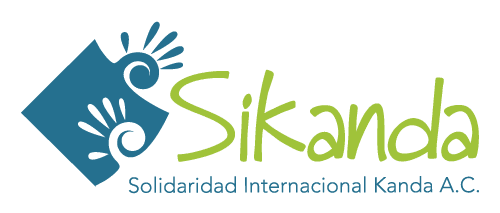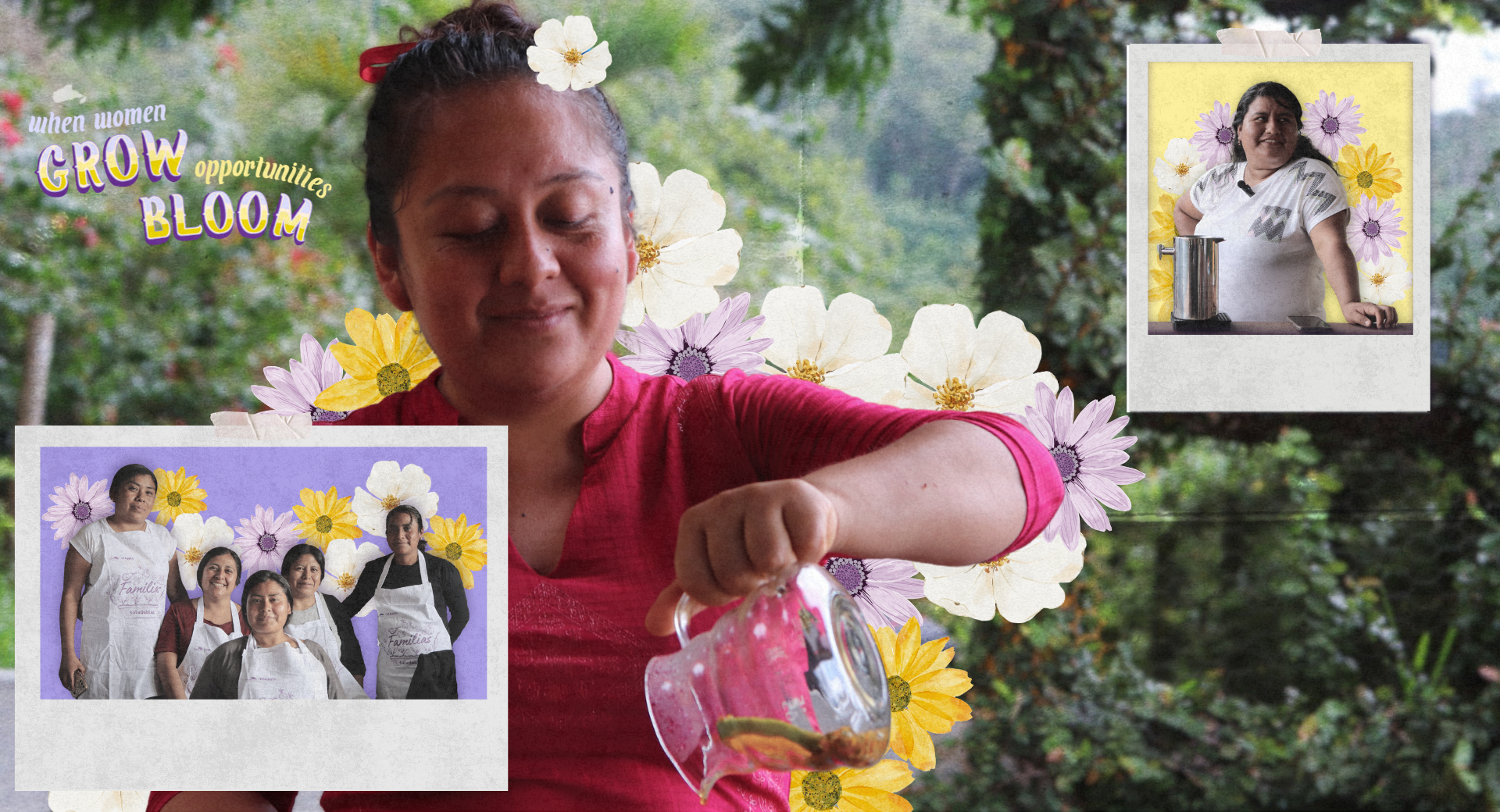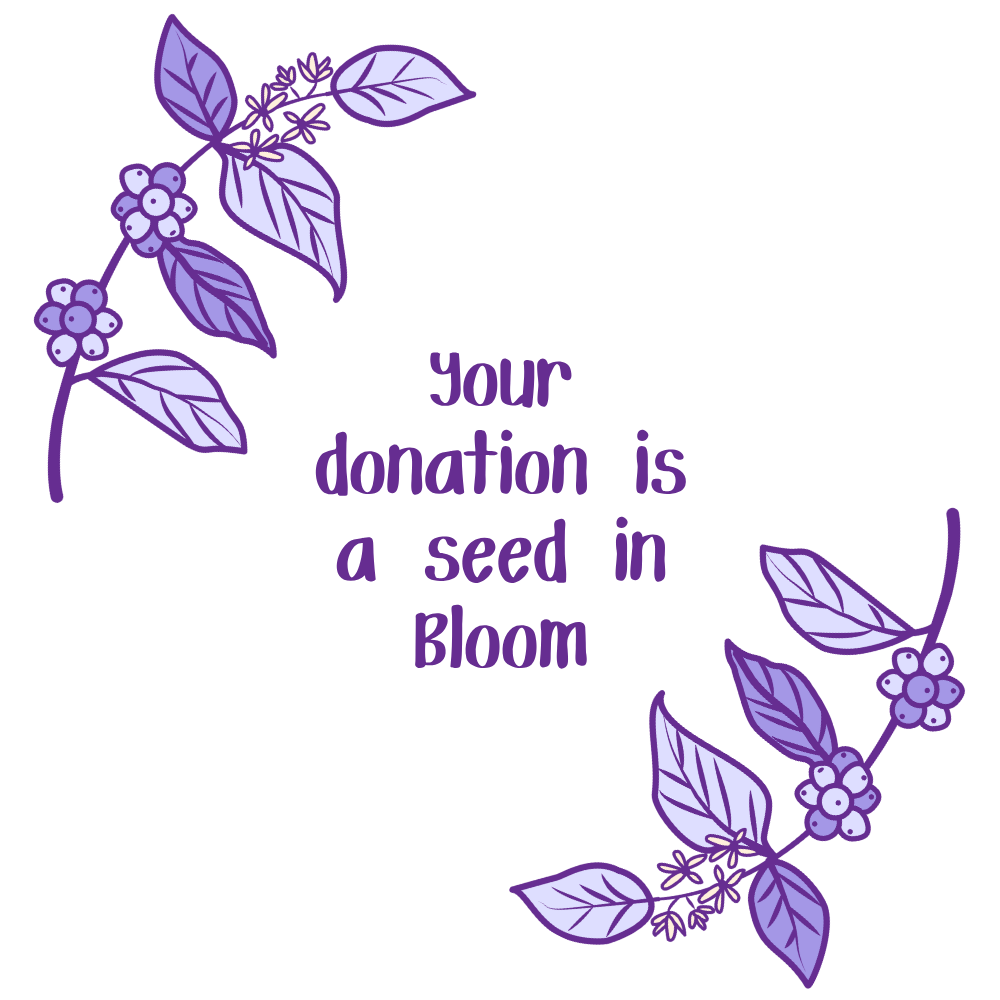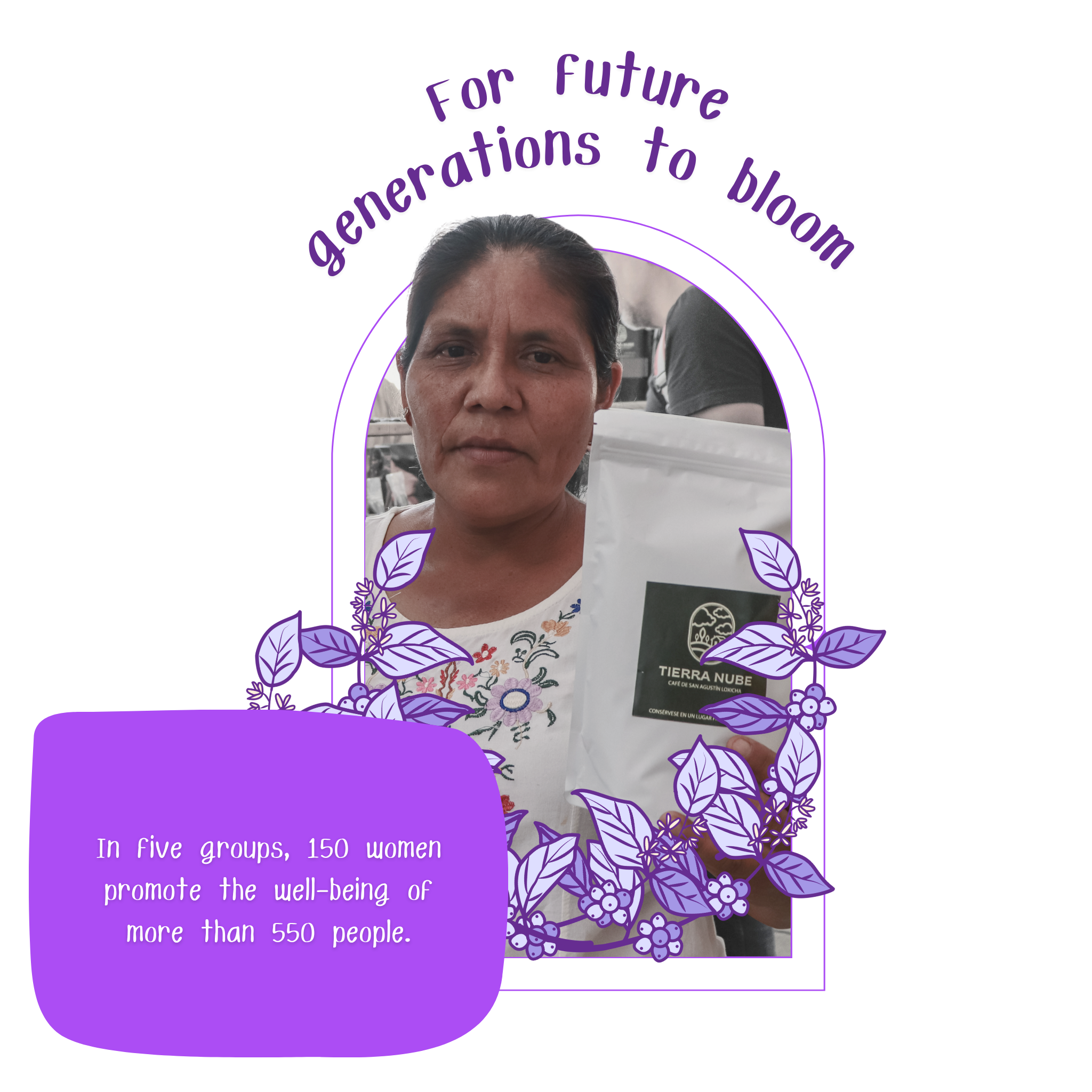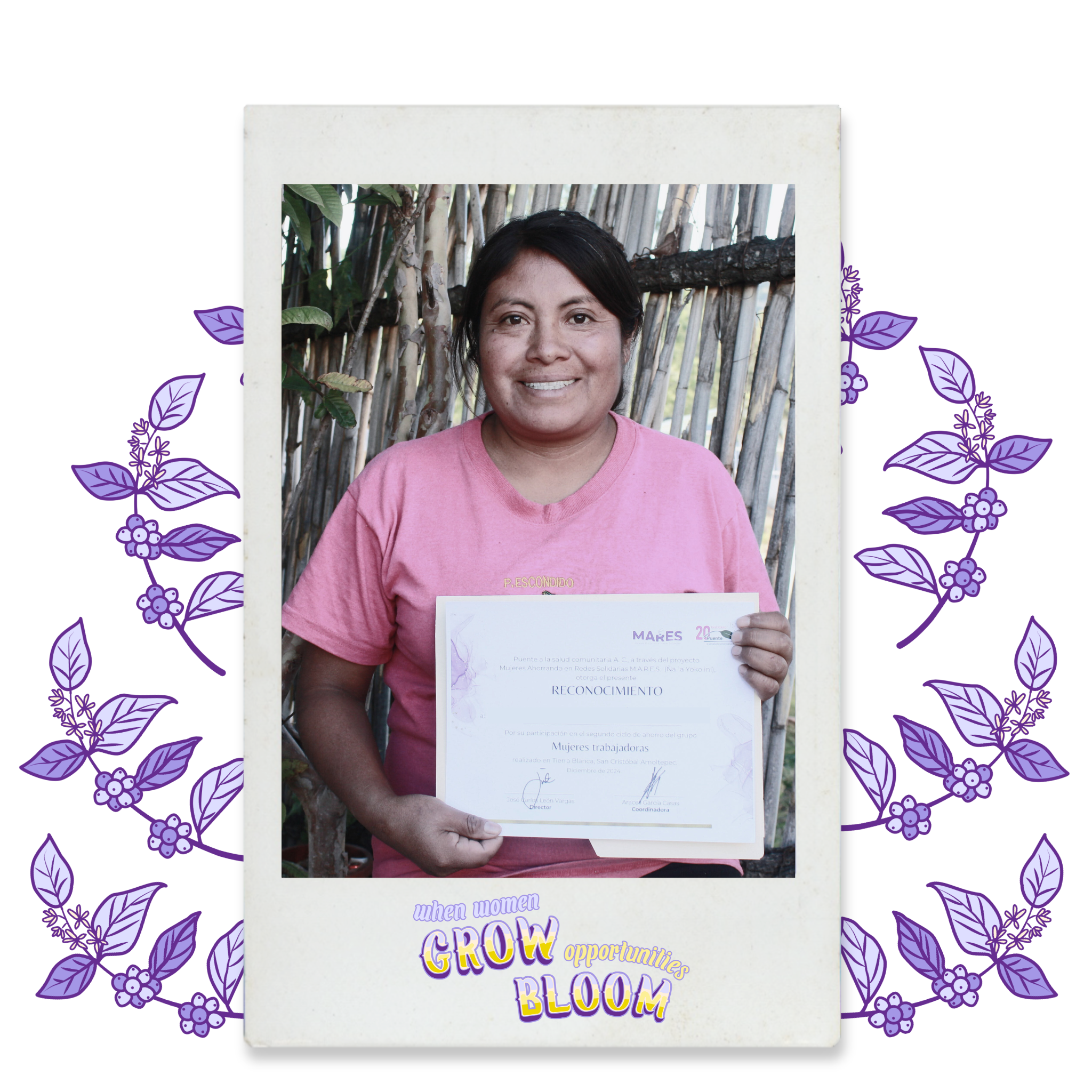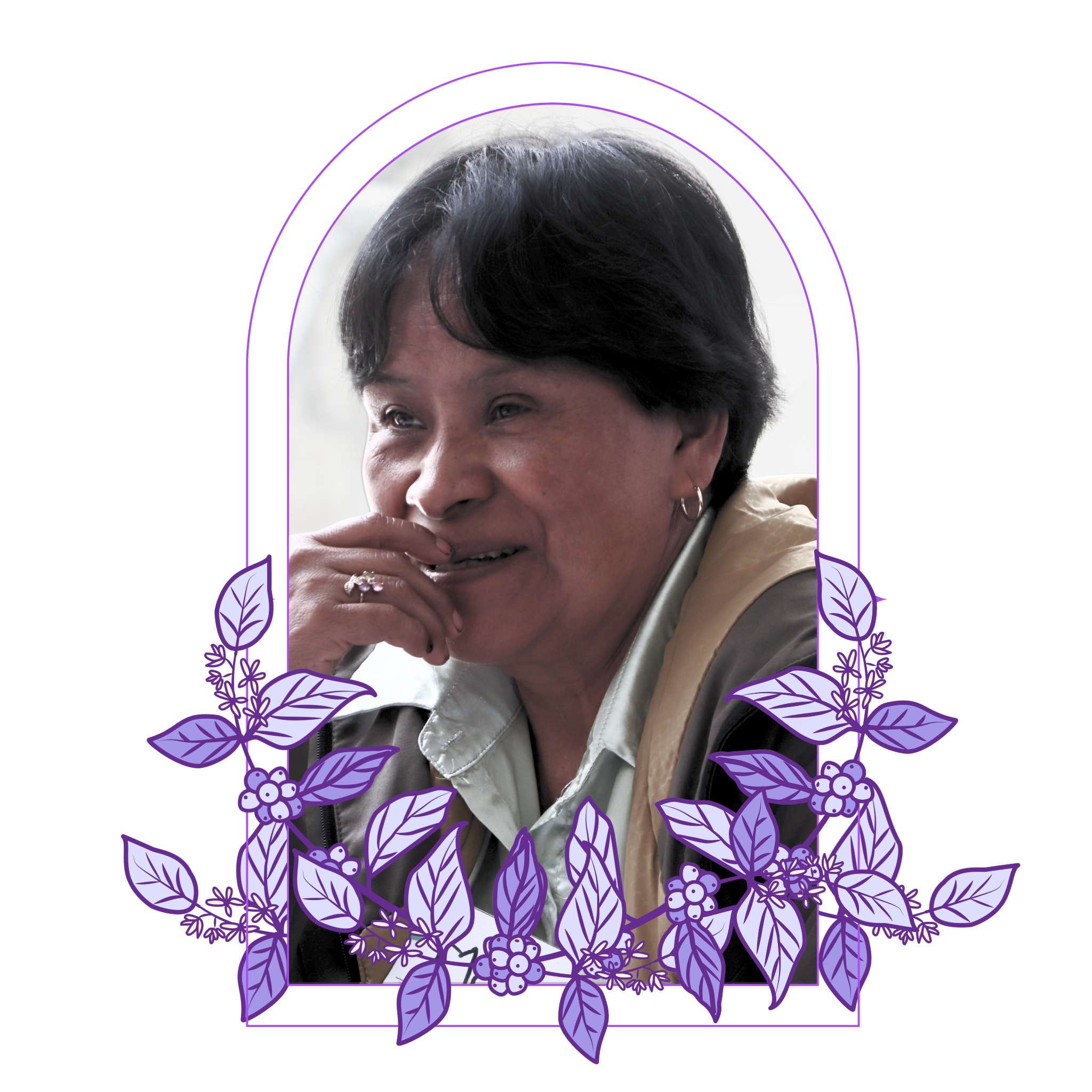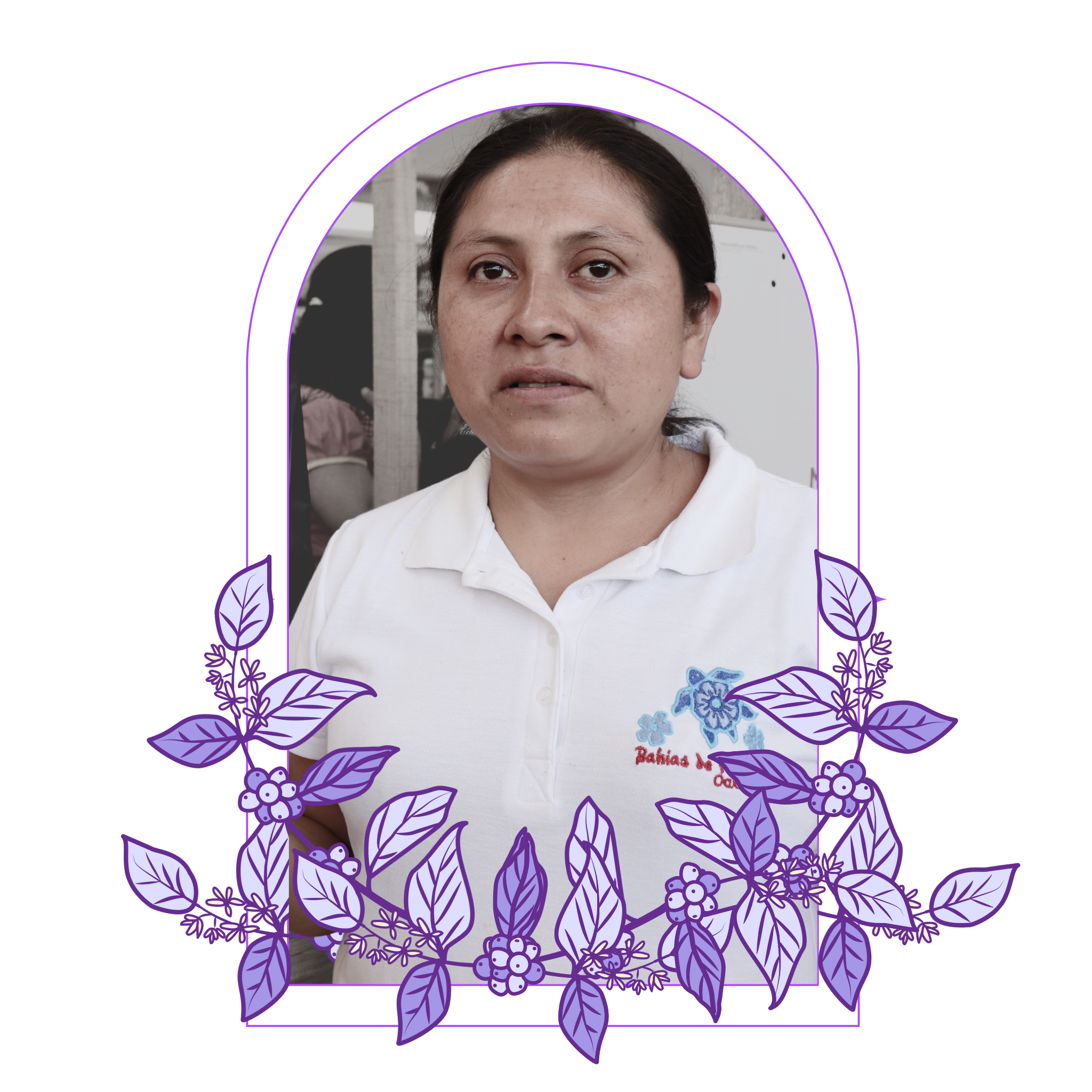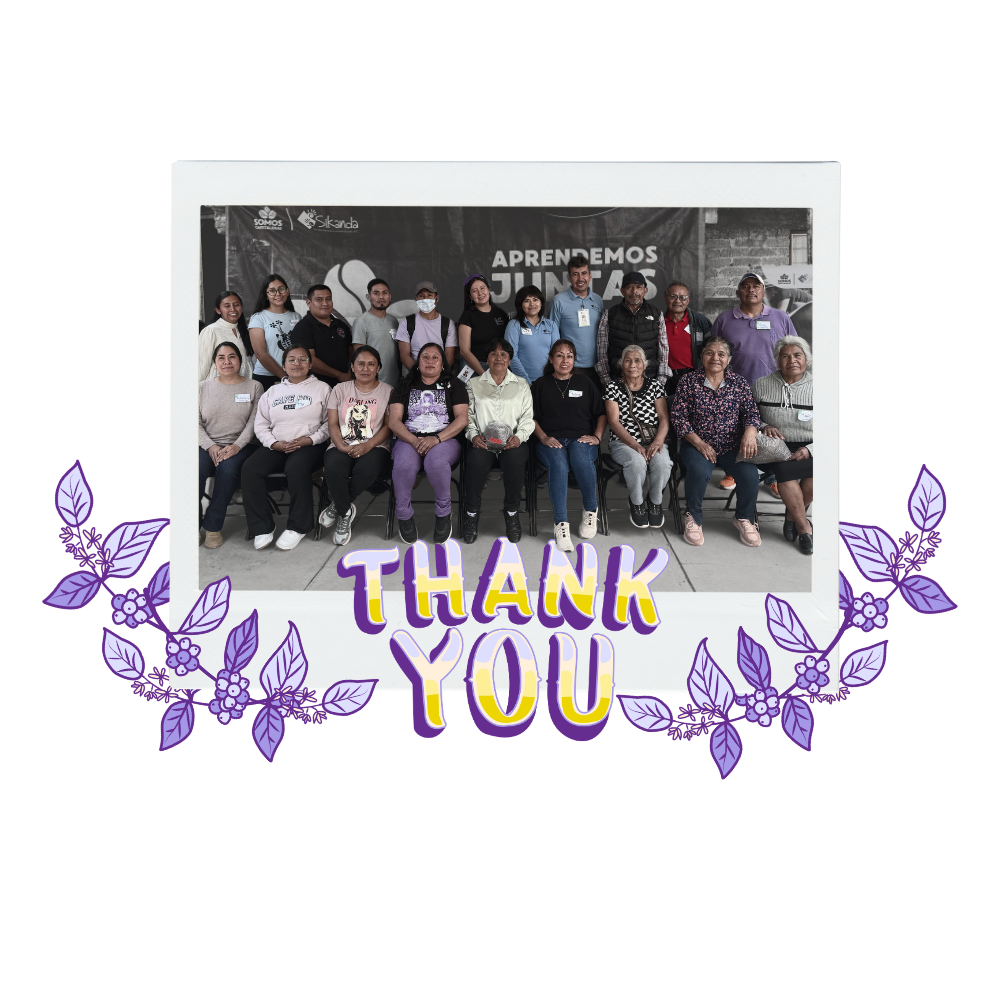Meanwhile, Puente implements the MARES Project Women Saving in Solidarity, where participants gain access to financial skills and learn collective savings strategies that help improve their families’ nutrition, stability, and well-being.
Through the savings groups, women unlock their potential, overcome the barriers imposed by traditional gender roles, and strengthen their economic and social participation—both within and beyond their communities.
SAVINGS & INCOME
In MARES, women exercise full autonomy and leadership, collectively managing finances, from setting share prices (max savings amount per session) and loan rates to safeguarding funds.
This self-governed microcredit system enables them to invest in vital projects, creating a cycle of solidarity that multiplies their agency and economic capacity.

AUTONOMY
Women build deep bonds of trust and sisterhood, discovering untapped strengths and skills within themselves.
Feeling more confident and valued at home and in their communities, most participants begin to acknowledge themselves as providers and decision-makers, directly contributing to the diversification of family income.
In fact, 9% of participants have sucessfully created or strengthened their micro-enterprises usingtheir savings.
LEADERSHIP AND COMMUNITY PARTICIPATION
Through the project’s dynamic roles, women learn to lead, communicate, and take responsibility. This experience has encouraged many to see themselves as leaders and changemakers, mobilizing their communities to advocate for improvements in education and health services.
-.-.-
SAVING AND INCOME
In MARES, women become shareholders by purchasing shares whose value is defined by the group itself. Members can buy up to five shares per session, fostering both flexibility and inclusion. Autonomously, each group decides the price of each share and the interest rate to be paid for the microcredits. Participants share the responsibility for safeguarding the community’s cash safe-box.
The microcredit system, allows women to invest in small projects that improve their quality of life, while the interest generated is reinvested in the group, circulating solidarity and autonomy.
AUTONOMY
Through regular meetings, the women have begun to build deep bonds of trust and sisterhood, discovering strengths and skills they hadn’t recognized before. Many participants share that joining MARES has helped them feel more confident and valued—both at home and in their communities.
The combination of dialogue, mutual support, and daily saving has also strengthened the recognition of women as providers and decision-makers, contributing to the diversification of family income.
Currently, 9% of participants have created or strengthened their micro-enterprises through their savings.
LEADERSHIP AND COMMUNITY PARTICIPATION
By taking on different roles within their groups, women learn to lead, communicate, and take responsibility, both individually and collectively.
This experience has encouraged many to see themselves as leaders and changemakers, expanding their participation and influence in community spaces.
